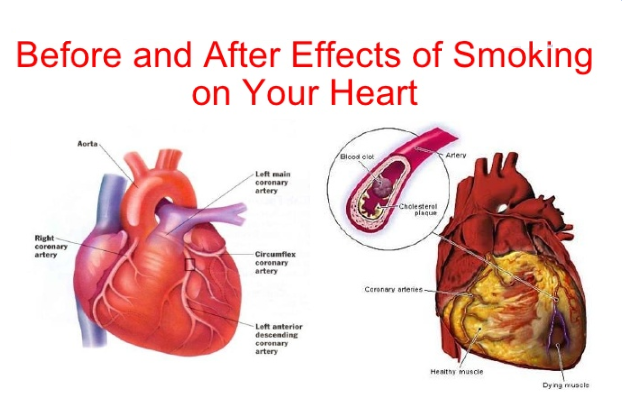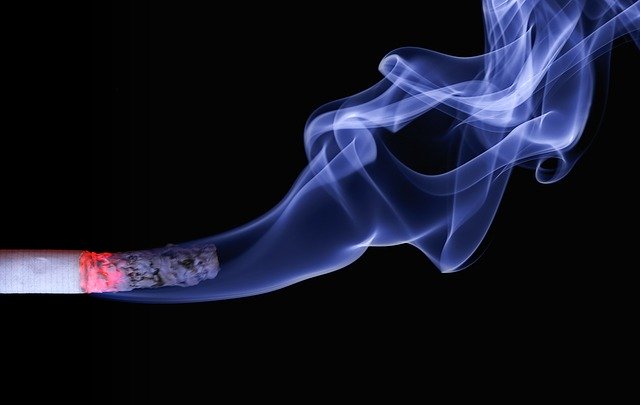“Smoking is injurious to health”, everyone knows that smoking cigarettes is very bad for our health, it harms nearly every organ of the body, some that you would not expect. It causes cancers and health problems like chronic obstructive pulmonary disease, damage to and thickening of blood vessels, emphysema, etc. Women’s smoking while pregnant causes pregnancy problems also. But the number of users is increasing per day, especially in teens.
Smoking causes addiction to nicotine, a stimulant drug that is in tobacco. Nicotine addiction makes it much harder for people to quit smoking. Health problems that are caused by smoking do not only affect the smoker but also affect other people who breathe the smoke.
secondhand smoke can cause health problems which include heart diseases and lung cancer. Children exposed to secondhand smoke have a higher risk of ear infection, colds, bronchitis, and more severe asthma.
There are no safe substances in any tobacco products, tobacco smoke is incredibly harmful to your health. There’s no safe way to smoke. Replacing your cigarette with a cigar, pipe, or hookah won’t help you avoid the health risks. Smoking even just one cigarette per day over a lifetime can cause smoking-related cancers and premature death.
So, let find how smoking affects our entire body.
Respiratory system
When you inhale smoke, you’re taking in substances that can damage your lungs. Over time, this damage leads to a variety of problems. Along with increased infections, people who smoke are at higher risk for chronic irreversible lung conditions such as:
- The destruction of the air sacs in your lungs – emphysema
- Permanent inflammation that affects the lining of the breathing tubes of the lungs – Chronic bronchitis
- Chronic obstructive pulmonary disease (COPD), a group of lung diseases
- Lung cancer
Withdrawal from tobacco products can cause temporary congestion and respiratory discomfort as your lungs and airways begin to heal. Increased mucus production right after quitting smoking is a positive sign that your respiratory system is recovering.
Central nervous system
One of the ingredients in tobacco is a mood-altering drug called nicotine. Nicotine reaches your brain in mere seconds and makes you feel more energized for a while. But as that effect wears off, you feel tired and crave more. Nicotine is extremely habit-forming, which is why people find smoking so difficult to quit.
Physical withdrawal from nicotine can impair your cognitive functioning and make you feel anxious, irritated, and depressed.withdrawal can also cause headaches and sleep problems.
Cardiovascular system

Smoking damages your entire cardiovascular system. Nicotine causes blood vessels to tighten, which restricts the flow of blood. Over time, the ongoing narrowing, along with damage to the blood vessels, can cause peripheral artery disease and blood pressure
Smoking also raises blood pressure, weakens blood vessel walls, and increases blood clots. Together, this raises your risk of stroke.
You’re also at an increased risk of worsening heart disease if you’ve already had heart bypass surgery, a heart attack, or a stent placed in a blood vessel.
Smoking not only impacts your cardiovascular health, but also the health of those around you who don’t smoke. Exposure to secondhand smoke carries the same risk to a nonsmoker as someone who does smoke. Risks include stroke, heart attack, and heart disease.
Integumentary system
The more obvious signs of smoking involve skin changes. Substances in tobacco smoke actually change the structure of your skin. A study has shown that smoking dramatically increases the risk of skin cancer.
Your fingernails and toenails aren’t immune from the effects of smoking. Smoking increases the likelihood of fungal nail infection.
Our hair is also affected by nicotine.Smoking increases hair loss, balding, and graying.
Sexuality and reproductive system
Nicotine affects blood flow to the genital areas of both men and women. For men, this can decrease sexual performance. For women, this can result in sexual dissatisfaction by decreasing lubrication and the ability to reach orgasm. Smoking may also lower sex hormone levels in both men and women. This can possibly lead to decreased sexual desire.
Digestive system
Smoking increases the risk of mouth, throat, larynx, and esophagus cancer. Smokers also have higher rates of pancreatic cancer. Even people who “smoke but don’t inhale” face an increased risk of month cancer.
Smoking also has an effect on insulin, making it more likely that you’ll develop insulin resistance. That puts you at increased risk of type 2 diabetes and its complications, which tend to develop at a faster rate than in people who don’t smoke.
From this article, you can find out how smoking affects our entire body. The smoking habits of people also bad for the other people, so be a responsible person quit smoking or help your smoking friend to quit. Enjoy smoke-free health life.





